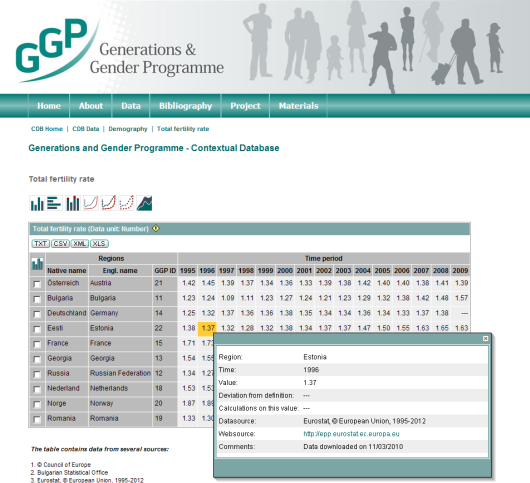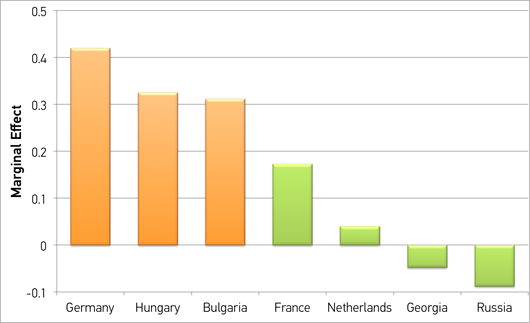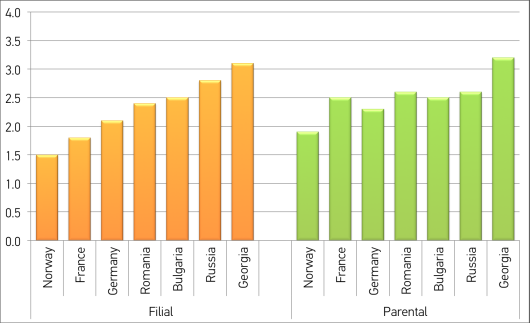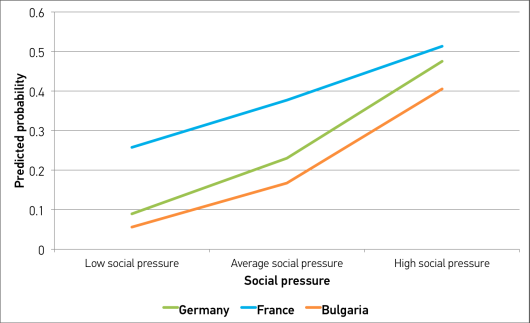In addition to providing individual-level survey data, the Generations and Gender Programme (GGP) offers contextual data on demographic, social and economic conditions at the national and regional levels for up to 60 countries. These data are available in the GGP Contextual Database, which is integrated into the GGP web page. The GGP Contextual Database enhances the analytical potential of the Generations and Gender Survey by enabling users to link individual-level behaviour with information about the context in which the individual is embedded. The database is designed to support research into micro-macro links at the intersection of demographic and social science research. In addition, researchers interested in studying macro-level trends can also benefit from the data available in the GGP Contextual Database. The database is co-ordinated by the Max Planck Institute for Demographic Research in Rostock, Germany.
Main Contextual Database interface: Example

In addition to providing individual-level survey data, the Generations and Gender Programme (GGP) offers contextual data on demographic, social and economic conditions at the national and regional levels for up to 60 countries. These data are available in the GGP Contextual Database, which is integrated into the GGP web page. The GGP Contextual Database enhances the analytical potential of the Generations and Gender Survey by enabling users to link individual-level behaviour with information about the context in which the individual is embedded. The database is designed to support research into micro-macro links at the intersection of demographic and social science research. In addition, researchers interested in studying macro-level trends can also benefit from the data available in the GGP Contextual Database. The database is co-ordinated by the Max Planck Institute for Demographic Research in Rostock, Germany.
Main Contextual Database interface: Example

Receiving childcare help from grandparents has a positive and significant impact on mothers’ labour force participation in some countries (Bulgaria, Germany and Hungary) but not in others. Findings thus suggest a complex interaction between formal and informl childcare, national context, and fertility decisions. Moreover, controlling for the endogeneity of grandparents’ childcare provision through the use of instrumental variables reveals considerable biases as compared to a “naive” probit model.
Estimated marginal effect of grandparents’ childcare provision on mothers’ labour supply a

Source: Aassve, A., Arpino, B., Goisis, A. (2012). Grandparenting and mothers’ labour force participation : a comparative analysis using the Generations and Gender Survey. Demographic Research. 27, 3: 53—84.
a: Estimated with a bivariate probit model, marginal effects after controlling for age, education, number and age of children.
![]() – statistically not significant result;
– statistically not significant result; ![]() – statistically significant result
– statistically significant result
The GGP NESSTAR Online Access enables searching, browsing and analyzing Generation and Gender Survey (GGS) data and metadata without the user having to access the micro-data files directly. The NESSTAR interface consists in an intuitive user-friendly analytical tool that allows visualizing data with tables and graphs as well as performing basic statistical analyses. Researchers, students, journalists, policy makers, and anyone interested can easily obtain a comprehensive overview of GGS data and metadata. The interface is maintained by the Survey Department of the “Institut national d’études démographiques” (INED, France).
Main NESSTAR interface: Example

Both filial responsibility norms (from adult children to their elderly parents) and parental responsibility norms (from elderly parents to their grown-up children) display a clear East-West gradient. The gradient is however steeper in the case of filial norms. In both cases, the support for family norms is lower in Norway and higher in Georgia. In the North-west European countries, filial norms were moreover found to have a more open character in that adult children are expected to help older parents in case of need, but not necessarily to adjust their working lives to their parents’ needs. Stronger, and more unconditional norms, were instead observed in Eastern Europe.
Average value of the index of filial responsibility and the index of parental responsibility in seven European countries a

a: Mean score of a two-item index with each item measured from ‘0’(totally disagree) to ‘4(totally agree). A higher score thus indicates a stronger support for filial/parental obligations.Source: Daatland, S.O., Herlofson, K., Lima, I.A. (2011). Balancing generations: on the strength and character of family norms in the West and East of Europe. Ageing & Society, 31 (7): 1159—1179.
Both social pressure and emotional support (as a form of social capital) influence the likelihood of intending to have a second or third child. Being exposed to higher social pressure consequently results in a higher predicted probability of intending to have a child. The probability is however higher for men in France than in Bulgaria or Germany.
Predicted probability of intending to have a second or third child for men

Source: Balbo, N. & Mills, M (2011). The effects of social capital and social pressure on the intention to have a second or third child in France, Germany, and Bulgaria, 2004–05. Population Studies, 65 (3), 335-351.
Fill the form below with your contact information to receive our monthly GGP at a glance newsletter.
